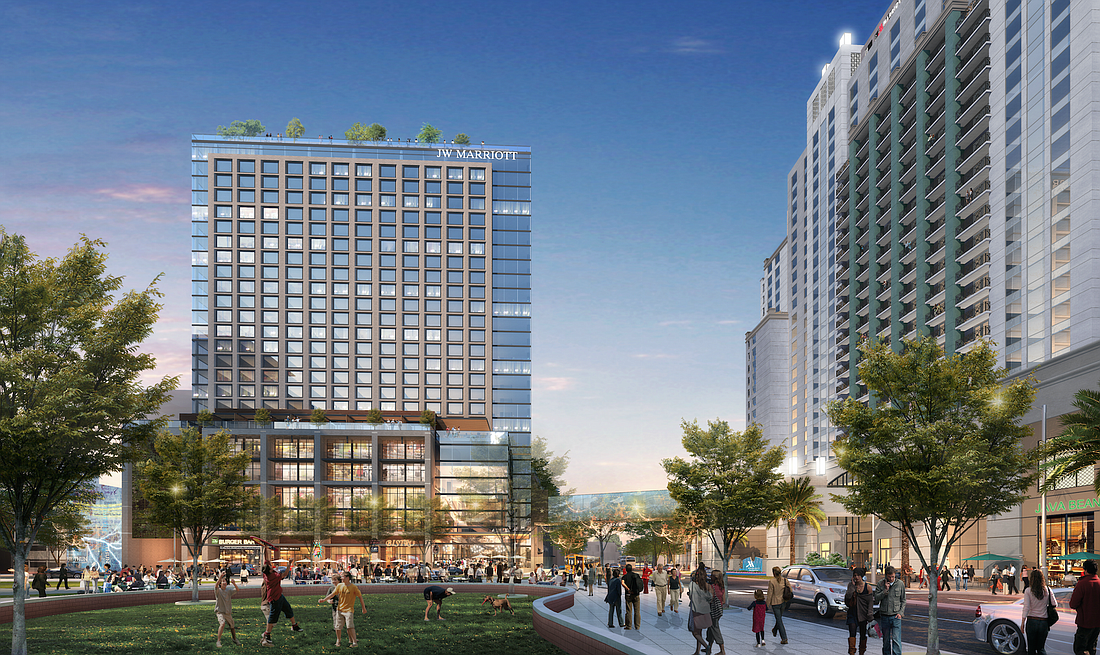- April 8, 2025
-
-
Loading

Loading

Tampa Bay hoteliers are faring better than many of their counterparts around the country amid COVID-19, but operators and owners alike here remain hopeful that the Super Bowl LV will generate solid numbers and boost an industry struggling from the pandemic.
In past years, hosting the National Football League’s championship game — scheduled for Feb. 7, 2021 at Raymond James Stadium in Tampa — would have meant tens of thousands of visitors, millions of dollars in economic impact and priceless international attention for the area.
But as the coronavirus surges across the country and is prompting rising numbers in Florida, and as health experts warn the winter months could see a further spike in infections, many Tampa Bay hospitality industry professionals are cautioning that expectations around the big game should be muted.
Even so, Tampa Bay business leaders attending an Urban Land Institute webinar earlier this month say the international attention will be welcomed.
“I’m not sure at this point what events we’ll have,” says Ron McAnaugh, general manager of the new 520-room JW Marriott hotel and Marriott Water Street, which are both part of the $3 billion Water Street Tampa project downtown.
“The NFL is being very cautious and gathering information,” McAnaugh says. But it will still be a great showcase for Water Street Tampa and regardless of the numbers of people here, the area will still be all over television screens all around the country.”
Lou Plasencia, CEO of The Plasencia Group, a Tampa-based hotel developer, brokerage and consultantcy whose firm developed the luxury Waldorf-Astoria Beverly Hills, among other properties, agrees the exposure is significant.
“The Super Bowl sends a positive message to the world, to places like Australia and Germany” Plasencia says. “It’s exposure you can’t buy. The impact is very far reaching, and it’s not only a two-day event: The benefits of having the Super Bowl here last for a very long time.”
The pending Super Bowl comes as many urban and non-beachfront hoteliers throughout the U.S. are grappling to fill rooms and maintain room rates amid the largely unprecedented health crisis brought about by the virus.
Still, while Tampa Bay lodging properties have suffered — revenue per available room (RevPAR), a key hotel industry financial metric, is off 41% through September — Plasencia notes the region has performed better than in many competing cities.
“Tampa Bay is doing significantly better than the rest of the U.S.,” he says.
In Nashville, by comparison, RevPAR is off by nearly 70% this year. Many other cities, including Austin and Charlotte, N.C., are also facing staggering declines.
Tampa Bay’s average occupancy rate of 49.3% and with an average daily rate of $113.02 per night stacks up favorably both to the state and the U.S., according to data from STR, a leading hospitality research firm.
Florida’s average occupancy, by comparison, was 48.7% through the first nine months of this year, though the average rate was higher at $138.87 per room. Nationwide, occupancy was 44.8%, with an average rate of $106.22 per room per night.
Hotels typically break even when average occupancy hovers around 65%, provided the property can generate anticipated revenue per available room.
But revenue overall has declined significantly as a result of the pandemic. In Hillsborough County, hotel revenue has dropped by 39% this year vs. the same time period in 2019.
Revenue throughout the state and the U.S. has fallen even further, by 42% and 48.7%, respectively, during the same time period, STR research states.
Plasencia notes that the number of new hotel properties either under construction or slated to come online soon stemming from years of tourism and business gains now presents a large challenge.
In all, he notes that there are more than 3,000 new hotel rooms being prepared to be added to the area’s inventory, including the new 26-story JW Marriott.
“There will be a challenge especially for larger hotels for at least the next year, through 2021,” Plasencia told the ULI webinar. “Supply invariably affects rate.”
That’s why hosting the Super Bowl, with its throngs of visitors from around the country and the world and NFL staff, guests and media, is critical, experts say.
Super Bowl LV will be Tampa’s fifth NFL championship and the third played at Raymond James Stadium. Only three other cities have hosted the game more than Tampa, says Rob Higgins, executive director of the Tampa Bay Sports Commission and the CEO of the Tampa Bay Super Bowl LV Host Committee.
The Super Bowl — even more so than the Republican National Convention, NCAA championships and the college football national championship, all of which have been held in Tampa in recent years — ripples economic impact throughout Central and Southwest Florida.
Hotel rooms tied to the game and surrounding events are typically booked in Pinellas, Pasco, Polk, Manatee and Sarasota, Plasencia says. In years past, many patrons have been forced to stay in Orlando because of a lack of inventory in the Tampa Bay area, though that has changed as a result of new properties having been built.
This year, however, could be quite different. The NFL is contemplating holding attendance capacity at just 20% of what Raymond James Stadium could hold, though no final decisions have yet been made.
“We don’t yet know what capacity is going to look like,” Higgins says.
Ultimately, though, business leaders say even a less-than-robust attendance as compared to previous Super Bowl games will generate benefits.
“We won’t have likely the same number of folks here, but that doesn’t change the story that we are able to tell through video and through news stories,” says Maryann Ferenc, CEO of high-end restaurant group Mise en Place.
"We'll be advertising for the future."